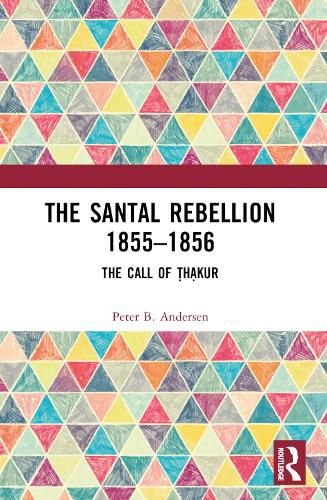Readings Newsletter
Become a Readings Member to make your shopping experience even easier.
Sign in or sign up for free!
You’re not far away from qualifying for FREE standard shipping within Australia
You’ve qualified for FREE standard shipping within Australia
The cart is loading…






The book presents a new interpretation of the Santal Rebellion, the Hul 1855-1856, drawing on the colonial sources as well as Santal memories. It offers a critique of postcolonial approaches that overlook specifically tribal perspectives and see the Hul as a class-based peasant rebellion.
The author analyses the Hul and its participants-the Santals and their opponents, both the colonial administration and the Bengalis. He also looks at the attempts of the Hul's leaders, Sido and K?nhu to reform the Santal religion. Offering a new, respectful reading of the Hul's religious legitimation, the book argues that changes in Santal religion and ethics were responses to the colonial regime's new and aggressive economic order. The Hul's leaders, Sido and K?nhu, demanded the introduction of just laws based on the universal principle of equality. This historical approach leads to a call for the inclusion of the voice of tribal and Adivasi minorities when formulating politics for their development in the 21st century.
The book is relevant for researchers and students of social history, social reform, tribal and indigenous studies, postcolonial studies and South Asian studies.
$9.00 standard shipping within Australia
FREE standard shipping within Australia for orders over $100.00
Express & International shipping calculated at checkout
The book presents a new interpretation of the Santal Rebellion, the Hul 1855-1856, drawing on the colonial sources as well as Santal memories. It offers a critique of postcolonial approaches that overlook specifically tribal perspectives and see the Hul as a class-based peasant rebellion.
The author analyses the Hul and its participants-the Santals and their opponents, both the colonial administration and the Bengalis. He also looks at the attempts of the Hul's leaders, Sido and K?nhu to reform the Santal religion. Offering a new, respectful reading of the Hul's religious legitimation, the book argues that changes in Santal religion and ethics were responses to the colonial regime's new and aggressive economic order. The Hul's leaders, Sido and K?nhu, demanded the introduction of just laws based on the universal principle of equality. This historical approach leads to a call for the inclusion of the voice of tribal and Adivasi minorities when formulating politics for their development in the 21st century.
The book is relevant for researchers and students of social history, social reform, tribal and indigenous studies, postcolonial studies and South Asian studies.